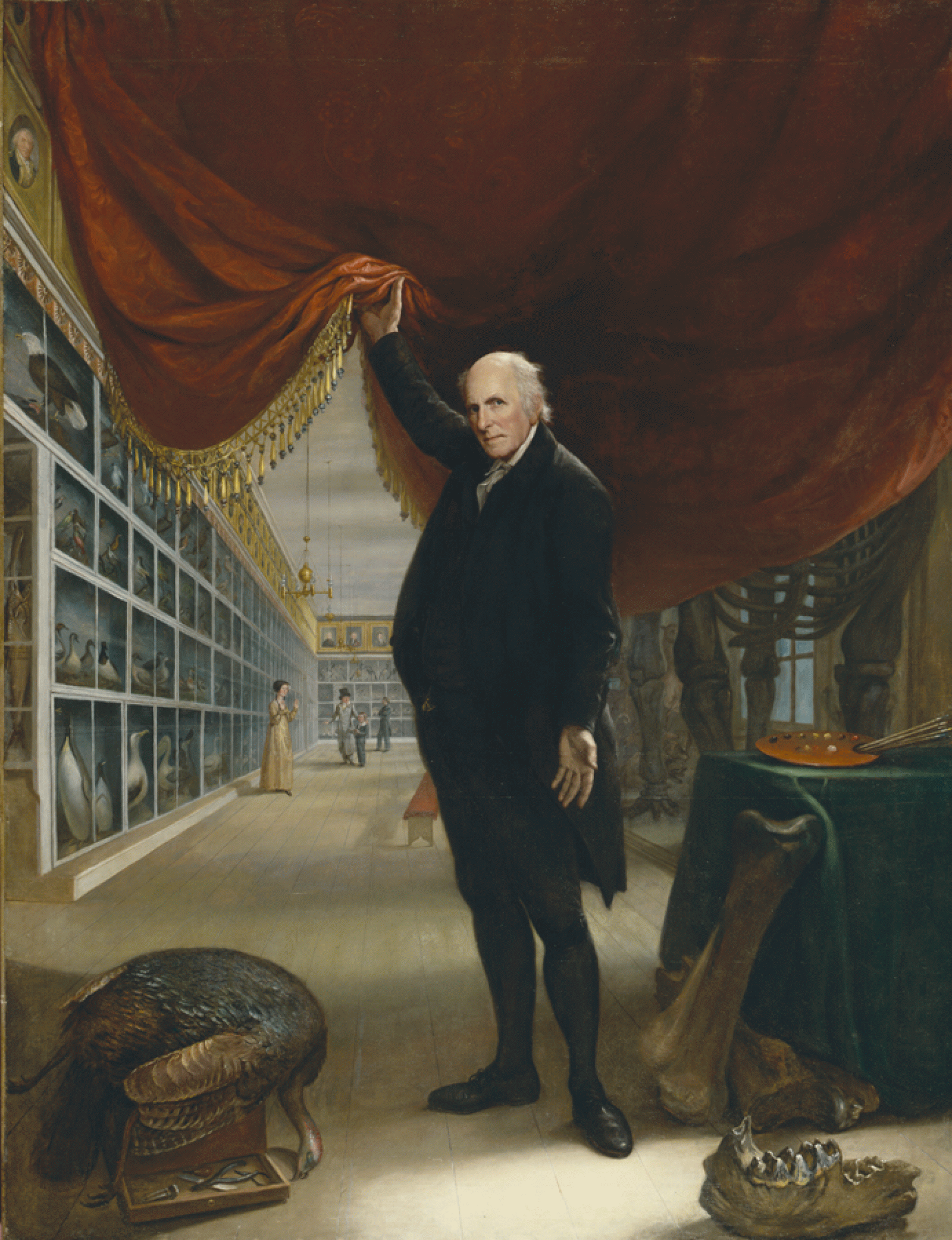KHI 2021+ Lecture Series
Rebecca Zorach:
“Abundantly Illuminated”: Art, Nature, and Race in the Early American Museum

Charles Willson Peale, The Artist in His Museum. 1822, oil on canvas. Pennsylvania Academy of Fine Arts
In the context of the current reexamination of monuments and institutions built around colonialism and slavery, this talk addresses the founding moment of the birth of the (US) American museum, in a moment when the museum and its civilizing mission served as an explicit assertion of white control over territory and dispossessed and subordinated bodies in the nascent republic. A central figure is Charles Willson Peale, who founded his Philadelphia Museum in the years immediately founding the establishment of the U.S. Constitution, and then participated in the founding of the Philadelphia Academy of Fine Arts, the nation’s first art museum. Peale’s projects and others that followed established divisions between art and nature but walked a fine line between them, placing only the artifacts of European and Euro-American makers in the category of “art” while promoting American “nature” as a sign of national exceptionalism. The talk addresses the key role of objects brought from Europe by Joseph Allen Smith—inheritor of a fortune gained in the human trafficking of enslaved Africans. Not only do the objects Smith imported serve as an index of what counted as “art,” but the circumstances of their arrival also played a key role in establishing international policy on the public functions of art.
Rebecca Zorach teaches in the Department of Art History at Northwestern University, with affiliations in programs in American Studies and Environmental Policy and Culture. She writes on early modern European art, contemporary activist art, and art of the 1960s and 1970s. Her books include Blood, Milk, Ink, Gold: Abundance and Excess in the French Renaissance (Chicago, 2005), The Passionate Triangle (Chicago, 2011), and Art for People’s Sake: Artists and Community in Black Chicago 1965–1975 (Duke, 2019). She is currently working on two book projects, one entitled The Designs of Nature, which deals with early modern European ideas about Nature as maker, in particular as a maker of images, art objects, and artifacts, and the other tentatively entitled Place Holding, in which she takes an experimental approach to writing about land, ecology, race and indigeneity, and art and its institutions in the United States.
This talk is part of the KHI 2021+ Lecture Series, organized by the doctoral and postdoctoral fellows, in collaboration with scientific staff and senior scholars of the Institute. It is envisioned as a forum to reflect on the futures of Art History through conversations with innovative voices in the discipline, working in different areas but sharing methodological concerns.
14 luglio 2021, ore 18:00
KHI 2021+ Lecture Series
The event takes place online.
Avviso
Questo evento viene documentato fotograficamente e/o attraverso riprese video. Qualora non dovesse essere d’accordo con l’utilizzo di immagini in cui potrebbe essere riconoscibile, da parte del Kunsthistorisches Institut in Florenz a scopo di documentazione degli eventi e di pubbliche relazioni (p.e. social media) la preghiamo gentilmente di comunicarcelo.


